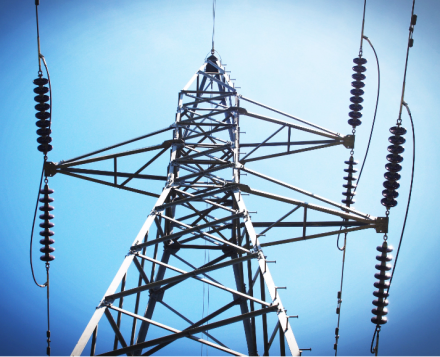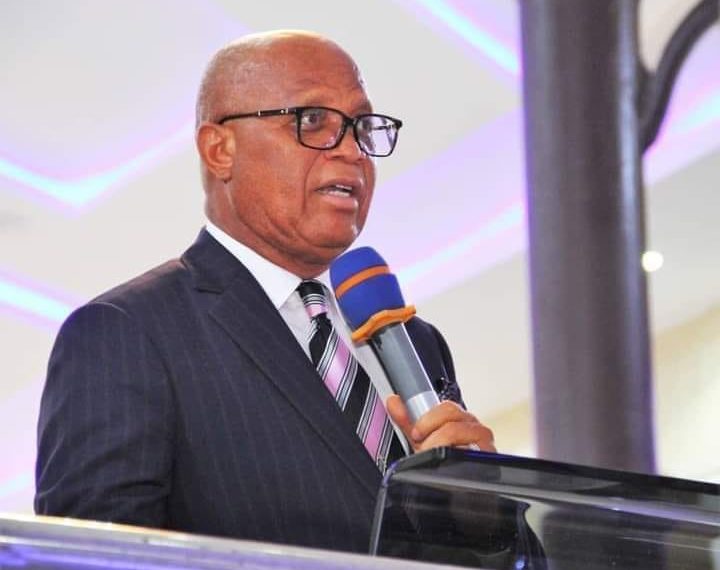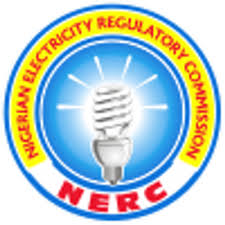14 October 2015, Lagos – The improvement recorded in the supply of electricity and distribution of petroleum products since the advent of the President Muhammadu Buhari administration in May 29, may have come as a surprise to many Nigerians.

There appears to be a new awakening in the sector, which has for long kept the country below the development indices. It must be noted that the immediate past administration of President Goodluck Jonathan, commissioned a lot of power projects at the twilight of his administration. It is no surprise that the effect is being felt in this new dispensation.
However, the resolve of the Buhari administration to strengthen every institution appears to be paying off. It was confirmed that no single case of gas pipeline vandalism has been recorded since Buhari assumed office.
This could be attributed to the fact that the Federal Government has been engaging stakeholders where the pipelines pass through to allow peace to reign. The action had resulted in increased gas supplies and improved power supply nationwide with about 4,600 megawatts.
For the first time, the Transmission Company of Nigerian, TCN, attained an all-time maximum energy transmission per day of 101,088 megawatt hours, MWH, on the national grid. According to the General Manager, Public Affairs of TCN, Mrs. Seun Olagunju, the previous record of 99,450MWH was attained on October 31, 2014.
She attributed the new feat to the supervision of its management contractor, Manitoba Hydro International, MHI. TCN explained that Manitoba had articulated short, medium and long term grid expansion plans aimed at growing and sustaining improvement in the nation’s transmission grid.
It added that the new record of 101,088MWH was in line with its grid expansion plan, and that being able to comfortably wheel the maximum energy ever moved along the nation’s transmission line indicates the networks growing capability to evacuate even more energy in the system.
Improvement in generation
The power situation was given a boost by the Egbin Power Plc, Nigeria’s largest power generation plant, which has started generating above 1000 megawatts of electricity consistently into the national grid. According to the Chairman of the Company, Mr. Kola Adesina, the increase is attributed to the dividends of the power sector privatisation in Nigeria.
He said: “This is the first time since inception of the power plant that it will achieve the feat because of the continuing investment and upgrade activities on the plant by the new investors – Sahara Power Group and Korea Electric Power Corporation (KEPCO).”
He noted that eight years ago, the plant hit the 1000mw mark for barely two hours and never attained it again until now. Prior to the privatisation and handover of the plant in November 2013, Egbin averaged generation of below 500mw due to the dismal state of its six units which was at its lowest point, as only two of the six units were operational.
While noting that the feat signposts the unfolding success of the privatisation process and power sector reform in Nigeria, Adesina also attributed the achievement partly to the direct intervention of the federal government in its determination to resolve the power crisis which has resulted in recent improvement in gas supply.
“This is driving the increase in power supply in the nation, boosting socio-economic development. Prior to this, we had invested heavily and had the plant ready to generate power at full capacity but there was no gas to do so. This is indeed a good development for the power sector in Nigeria,” he said.
Commending the Federal Government for recent interventions in the gas situation that has impacted power generation positively, the company’s Chairman called for more dynamic policies and incentives for sustainable gas supply across the nation.
Better electricity supply
The distribution companies have equally stepped up their resolve to improve power supply in their areas of operation. For example, the Benin Electricity Distribution Company, BEDC, in its bid to improve power supply in its four states of jurisdiction, Delta, Edo, Ekiti and Ondo, has started installing High Voltage Distribution Sub-stations (HVDS), as well as pole-mounted energy meters.
The BEDC management, which specified the numerous advantages of the energy meters and transformers over the older models, said: “The HVDS guarantees quality and reliable power supply to customers restricts outage to few customers connected to the HVDS whenever there is a fault, rather than plunging the whole area to darkness.”
It also explained that the transformer assists in reducing energy theft and thus energy saved could potentially reduce retail tariff. The company however appealed to its customers to remain calm and cooperate with its team of engineers as they come to their neighbourhood to ensure a smooth and successful execution of this exercise.
For the residents of Sapele, Delta State, the improved power supply is surprising. This is because for more than two decades, they have not enjoyed regular power supply.
According to Mr. Umukoro Ufuoma, a resident, the Federal Government might have threatened to revoke the operational licence of the BEDC, thus the electricity company’s supply of electricity.
“If not for reasons best known to them they have been keeping the town in permanent darkness, with the flimsy excuses that Sapele people are indebted to the organisation which is not true,” he said.
He, however, advised the BEDC to sustain the tempo and not to make the people believe that they are only been apprehensive of government’s intension to take their operational licence.
Ufuoma, who said the action of BEDC showed that it had been cruel to Nigerians all along, also pointed out that if they could ensure constant power supply now, they should be made to explain why it had not been possible in the past.
A staff of BEDC in Sapele who pleaded anonymity however said that the problem of power supply to Sapele and its environs rests with the investor and the distribution company, though he did not explain further.
Electricity supply has also improved within the area of coverage of the Yola Electricity Distribution Company. The improvement is so significant to the effect that all the communities in the Boko Haram occupied areas, where electricity supply were either disconnected or interrupted have been restored.
Adamawa, Borno and Yobe states which fall within the jurisdiction of the Yola DISCO were the worst hit of the Boko Haram insurgency. Electricity supply to the entire Borno and Yobe states and the Northern Adamawa were completely disconnected and vandalised for about five years due to the insurgency attacks. All these areas are now enjoying steady electricity supply.
According to Musa Ibrahim, a resident of Yola, the reason for the improved power supply is not far-fetched. In addition to the change of the management of the Disco, he believes that there was a presidential order that electricity supply must be restored to all parts of the region,.
The new turn of events in power supply attracted commendations from artisans, small business operators, and other consumers who hitherto depended on generators.
Electricity tariff
However, one of the major challenges facing the consumers in the zone is the issue of tariff.
“Prepaid meters issue is another big headache to consumers in this zone. The meters are no longer available for prospecting consumers to buy. It is only those few privileged consumers that can get the prepaid meter in this zone for a very long time now. I believe there is big behind the issue of prepaid meters,” said Yusuf Shuaibu, owner of a cold room in Yola.
In Ibadan, there were of complaints of unstable power supply and alleged extortion by officials of the Ibadan Electricity Distribution Company, IBEDC. In most industrial areas like Mokola, Eleyele, Challenge, Orita Challenge and environs where printers are concentrated, the environment was noisy and polluted as a result of hundreds of generators and smoke that they emit into the atmosphere. That was the scenario before May 29, 2015.
But residents said there is now a remarkable improvement in power supply. According to Adeola Fehintola, a mechanic at Eleyele area of the city, many of the artisans who had abandoned their jobs and turned to overnight commercial motorcyclists known as okada riders are now returning to their workshops where they do vulcanising, auto mechanic, fashion design and others.
“Yes, I can say there is slight improvement. At least for now, we have power supply for about six to eight hours in a day. This was not the situation before. I cannot say we are getting the best but to be fair, it is better. They always give us light in the daytime for about eight hours. Electricity supply is much better in Iseyin and Ipapo,” he said.
Fehintola however noted: “Due to the outrageous bills they bring monthly, there are times, residents will threaten to remove their ladder if they attempt to cut their cables. There was a time some people threatened the officials with charms asking them to come and remove their poles and wires.”
When contacted, the Public Relations Manager IBEDC, Mr. Frank Williams said: “The improved power supply is the assiduous efforts of the power sector to ensure that electricity generated, transmitted, and distributed gets to the consumers. Also, the collection agencies are grappling with their overheads. The monthly revenue is a far cry from what was billed and the total cost of energy delivered.”
Rainy season
However, the National Union of Electricity Employees, NUEE, doubts the sustainability of the improved power supply. The General Secretary of NUEE, Mr. Joe Ajaero, said: “During this time of the year, there is always a slight improvement in power supply because of the rise in water level. That is, the lake goes up and hydro power stations generate more power. Second is the Buhari factor, which has made operators to sit up and added to that, before now, the gas pipelines were usually vandalised.
“We suspect it may be in collaboration with some highly placed individuals who award contracts for the pipelines to be repaired which runs into billions of Naira. If the pipelines are vandalised and the contracts are awarded for repairs, almost every two months, it is big money for them. I think that because of the fear that those who engaged in the business may be caught, for now there is relative peace and the gas pipelines are delivering gas to the power plants.
“But we fear the current power situation may not be sustainable. Once the rainy season ends, and the water level drops, there will be a problem. Again, today all power being generated is being pumped into the system, there is no reserve in case of any break down, and there is no reserve in case of maintenance and so on. We ought to have reserve for emergencies. Sadly, we do not have that at the moment.”
Stable fuel supply
In the oil industry, the chaos experienced at the end of the last administration appears to have gone. The long queues at filling stations are no longer obtainable; neither are the preponderance of petrol hawkers on the streets of Nigerian towns.
This is despite major oil marketers and depot petroleum products marketers warnings that the fuel scarcity in the country might persist beyond May 29, if the Federal Government failed to pay their more than N200 billion outstanding claims on subsidy.
According to the Executive Secretary of Major Oil Marketers Association of Nigeria, MOMAN, Mr Obafemi Olawore, the outstanding payment on subsidy and interest remained unpaid by government led to its members’ inability to import petroleum products.
He said: “Because of the huge outstanding that we have; because we have not been able to pay back the loan we have taken, because our suppliers are not too confident, we are unable to bring fresh import.
“Whatever we have now is what we have received from NNPC and it is the small quantity that we have from NNPC that is why you see all the trucks in Lagos scrambling for them.
Four months after the change of baton from former President Goodluck Jonathan to Muhammadu Buhari, marketers are no longer threatening of impending scarcity of petroleum products, notwithstanding that they have not been paid their claims.
In fact, products are readily available at every filling station. Most importantly, kerosene, which was hitherto sold at about N150, is now sold at the official price of N50.
A petroleum dealer with NIPCO Plc, Mr. Adepoju Kayode, said that President Muhammadu Buhari’s ongoing reforms in the petroleum industry have brought about the stability and effectiveness in the sector.
Kayode who flagged-off the N50 per litre pilot scheme of the NIPCO filling station at Fadeyi, Lagos, said: “The NIPCO Fadeyi station has just started a pilot scheme of selling kerosene at N50. Ideally, all NIPCO stations should be selling at N50. Major marketers were not selling kerosene because of the stop gap they encountered at the refineries.
By the time they bribe government officials, the landing cost would amount to N90. But with the initiative of President Muhammadu Buhari’s government to give major marketers products on 10-day credit, it will eliminate the bureaucratic bottlenecks associated with PFI, pro-forma invoice.
Kayode deplored the situation where it was cumbersome to access credit facilities for the importation of petroleum products. “One of the conditions of getting PFI is ownership of depot, and then if you have connection with government agencies, you get the allocation to bring in kerosenee. Even if the government price is N20, by the time you bribe the officials and pay for vessels, the landing price will get to N90. That is why it has not been attractive to sell at N50,” he said.
Reacting to the allegation of kerosene diversion for aviation purposes he said that the discrepancies were due to leakages in the system. According to him, the normalcy being experienced in the sector now is due to President Buhari’s initiative.
“All the loopholes are being plugged. The bribery that used to go on at the refineries has been eliminated. The federal government is now bringing in the products from source to the major marketers. That is why the N50 price per litre is feasible.
“We will not sell beyond N50, after today, as other dealers used to do. We have our integrity at stake. We will not do anything to tarnish our corporate image. NIPCO is the highest selling filling station on Ikorodu Road. In as much as we get products, we will continue to sell at N50. The purpose of the initiative is to cut off the cartel that has held the sector by the jugular.
“This is also a way of eliminating the issue of subsidy. If our refineries are producing at maximum capacity, there will be no need for subsidy. Kerosene should be affordable, because it is mostly used by the poor in the society.
“The government should continue with the initiative of giving credit to marketers to eradicate the old order of using PFI. If the market is flooded with kerosene, the price will be competitive and affordable,” he added.
NNPC reforms
The ongoing reforms in the Nigerian National Petroleum Corporation, NNPC, probably have contributed to the stability and efficiency in the oil industry.
According to the Group Managing Director, GMD, NNPC, Dr. Ibe Kachikwu, the cancellation of some contracts has saved the Corporation about $150 million monthly. He said, “If you look at the contracts we have cancelled, we have saved an average of $150 million a month, just that some of those contracts were cancelled and were being given new models, even for the interim period.
In December, obviously we are going to have the crude bids. We are going to have the coastal bids. We are going to have the OPL bids. They will be thrown out to the entire world.
“Hopefully, we end up with a sequence of results, that will only save money, improve efficiency and be seen as transparent. The thing with transparency is that sometimes you are, but the perception is that you are not. So, you have got to deal with the perception issues.
Once you are open about it, people will see that you are open about it. I am very focused on transparency issues, because if NNPC must get back its credibility, it must be on the altar of transparency.”
- Vanguard



